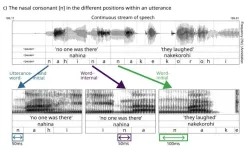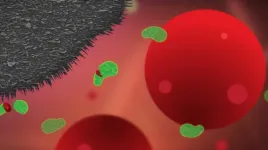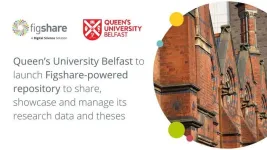SINGAPORE, 24 September 2024 – A landmark study led by Duke-NUS Medical School revealed that despite the recent pandemic, outbreak detection efforts remain under-resourced in South and Southeast Asia, with only about half the countries reviewed having integrated pathogen genomic surveillance initiatives in their national plans. Published in Nature Microbiology today, the study also identifies key priorities to enhance the preparedness of the region against future pandemics.
The study, conducted over 12 months between 2022 and 2023, analyses responses on genomic sequencing capacity for pathogen detection from 13 out of 19 countries that make up South and Southeast Asia.
The COVID-19 pandemic underscored the importance of genomic surveillance, which was vital in identifying SARS-CoV-2, monitoring its variants and designing COVID-19 vaccines. Initially focused on tracking SARS-CoV-2, these investments are now being used to address other disease priorities including drug-resistant tuberculosis, food-borne bacterial infections, dengue or to track the avian influenza A (H5N1) current outbreak.
While all 13 countries have national capacity for genomic sequencing, only 7 of the 13 assessed countries have integrated pathogen genomic sequencing into their national strategic plans for infectious disease surveillance. Additionally, only 6 countries have established guidelines for using pathogen genomics for infectious disease surveillance. The absence of national guidelines for pathogen genomic surveillance complicates implementation and resource allocation. Closing these gaps is crucial for improving the effectiveness and sustainability of infectious disease surveillance and response systems.
Assistant Professor Ruklanthi de Alwis, Deputy Director of Duke-NUS’ Centre for Outbreak Preparedness, said:
“Although it is encouraging to see some capacity for pathogen genomics sequencing, including in lower-resourced countries in our region, there is still room for strengthening it. It is vital that pathogen sequencing is used to maximise public health impact through infectious disease surveillance, response and control. Assessing the current state and needs was a crucial first step.”
The paper also identified five specific challenges faced by the region in adopting genomics sequencing for infectious disease surveillance:
Funding: Countries reported a reliance on external funders for pathogen sequencing. Across the 13 countries surveyed, 57 per cent of financial and other resources come from external donors, followed by the public sector (32 per cent) and academic institutions (6 per cent).
Trained manpower: Limited availability of trained laboratory staff and staff trained in bioinformatics for genomic sequencing processing and results’ analysis.
Cost: The cost of genomic sequencing-related equipment is prohibitively high and many resource-limited countries in Asia report paying higher prices for genomic sequencing compared with higher-income nations.
Supply chain: The supply chain for genomic sequencing equipment and reagents is sluggish, with new orders averaging two months to reach laboratories.
Turnaround time: Delays of several weeks between sample collection and the availability of genomic data hinder the timely use of this information to guide public health actions.
Dr Thimothy John Dizon from the Research Institute for Tropical Medicine in the Philippines said:
“The COVID-19 pandemic has served as a critical wake-up call for health systems worldwide, highlighting the immense value of genomics in combating pathogens and shaping public health responses. The intricate nature of genomics demands a transformation in our surveillance practices and has significantly bolstered collaboration among the Philippines’ public health laboratories, surveillance units and academic institutions. To maximise these advancements, it is essential to strengthen and sustain investments by fostering broader collaboration and partnerships both within the region and on a global scale.”
Dr Khoo Yoong Khean, Scientific Officer from Duke-NUS’ Centre for Outbreak Preparedness, added:
“Pathogen genomics is an innovation with significant public health impact, and our entire region would benefit from guidance on effectively planning and budgeting for genomics. Asia faces a high risk of emerging infectious disease outbreaks due to factors such as dense populations, high mobility rates, poor water and sanitation conditions, frequent human-animal interactions, climate stress, and a rapidly changing environment. Strengthening early detection through infectious disease surveillance is crucial for regional outbreak preparedness.”
Methodology of the study
This study was conducted in collaboration with partners from Bangladesh, Brunei Darussalam, Cambodia, Indonesia, Lao PDR, Malaysia, Myanmar, Nepal, Pakistan, Philippines, Sri Lanka, Thailand and Vietnam. Participation was voluntary and the study included data from all 13 countries.
Key partners in each of the participating countries were identified to take part in an in-depth survey, resulting in a total of 42 major local institutions contributing data. These organisations hailed from diverse sectors, including government entities, academic institutions, public laboratories, and non-governmental organisations.
Based on survey responses, 25 summary indicators were then chosen and calculated to evaluate the regional status of pathogen genomic surveillance. These indicators cover areas such as partnerships, financing, policies and guidelines, supply chain, laboratory infrastructure, bioinformatics, quality assurance, and data sharing and impact.
The study was published under the Asia Pathogen Genomics Initiative (Asia PGI), a regional consortium hosted by Duke-NUS that is dedicated to advancing pathogen genomics. The consortium has established a specialised training academy at Duke-NUS, enabling countries to collaborate through tailored programmes that address priority health threats in Asia. Key partners in this work include the Bioinformatics Institute at Singapore’s Agency for Science Technology and Research.
In collaboration with the US Centres for Disease Control and Prevention (US CDC), Asia PGI is also organising a joint workshop later this year on national planning and implementation of pathogen genomics for infectious disease surveillance.
Professor Linfa Wang, Executive Director, Programme for Research in Epidemic Preparedness and REsponse (PREPARE), added:
“While genomics is essential for surveillance, countries also need new tools in their outbreak response toolkit. PREPARE and Asia PGI will continue working with regional partners to enhance resilience to future epidemics and pandemics, and in the longer term, leveraging genomics capacity to rapidly develop new diagnostics and vaccines will be a crucial area of support for our efforts.”
###
Reference: Marya Getchell, Suci Wulandari, Ruklanthi de Alwis, et al on behalf of the Asia Pathogen Genomics Initiative (Asia PGI) consortium. Current status of pathogen genomic surveillance among lower resource settings in Asia. Nature Microbiology DOI: 10.1038/s41564-024-01809-4
About Duke-NUS Medical School
Duke-NUS is Singapore’s flagship graduate entry medical school, established in 2005 with a strategic, government-led partnership between two world-class institutions: Duke University School of Medicine and the National University of Singapore (NUS). Through an innovative curriculum, students at Duke-NUS are nurtured to become multi-faceted ‘Clinicians Plus’ poised to steer the healthcare and biomedical ecosystem in Singapore and beyond. A leader in ground-breaking research and translational innovation, Duke-NUS has gained international renown through its five signature research programmes and 10 centres. The enduring impact of its discoveries is amplified by its successful Academic Medicine partnership with Singapore Health Services (SingHealth), Singapore’s largest healthcare group. This strategic alliance has spawned 15 Academic Clinical Programmes, which harness multi-disciplinary research and education to transform medicine and improve lives.
For more information, please visit www.duke-nus.edu.sg
For media enquiries, please contact:
Brandon Raeburn
Communications & Strategic Relations
Duke-NUS Medical School
Tel: +65 9776 8496
Email: braeburn@duke-nus.edu.sg
END




